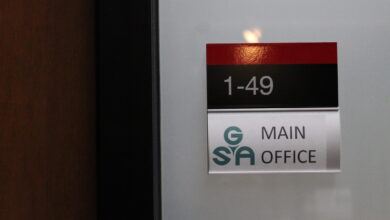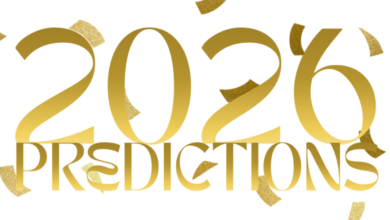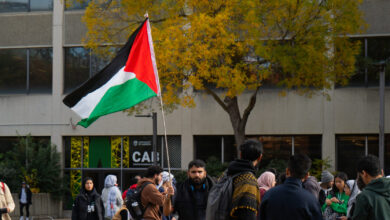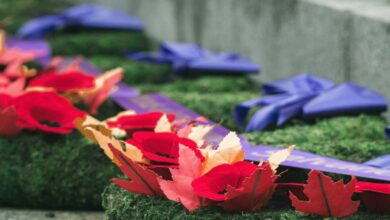Canadians need truth, not just reconciliation
Canada Day can't be celebrated without the truth about residential schools, accountability, and awareness by non-Indigenous Canadians.
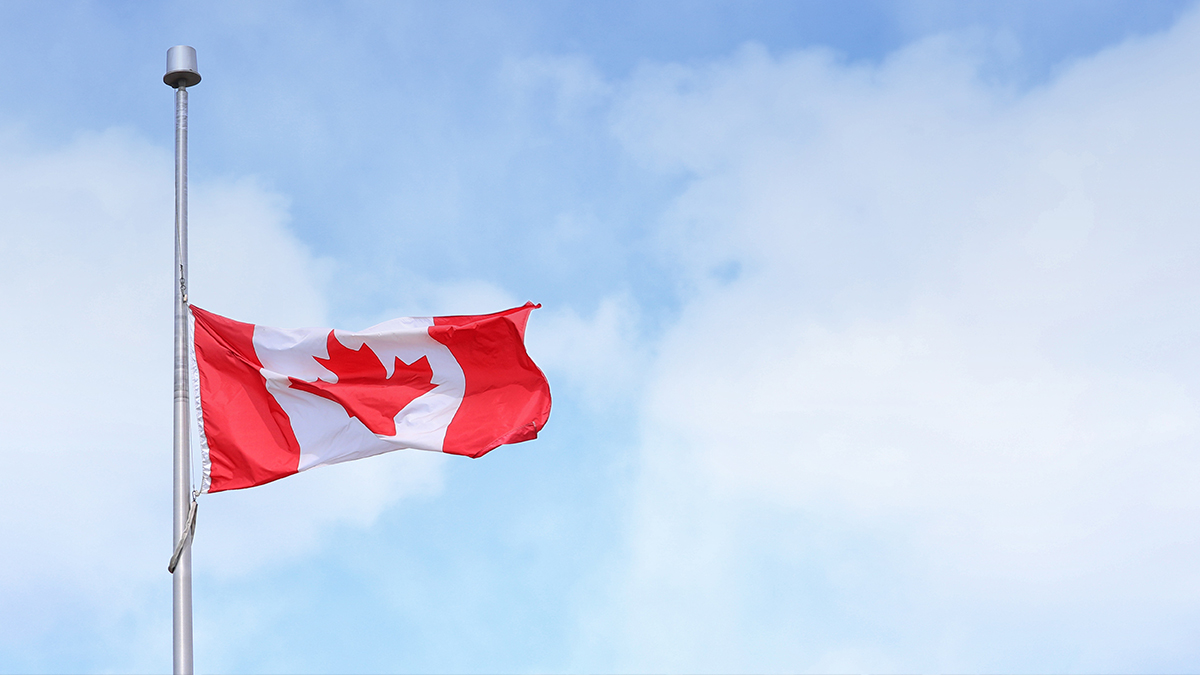 Supplied
SuppliedWhen the news broke on May 27 last year that 215 unmarked graves were found at the Kamloops Indian Residential School, many non-Indigenous Canadians were surprised. The news was met with denial, despair, and shame across the country. Indigenous people, however, had always known. They had been telling people for years, to no avail.
When concrete evidence was found, and the numbers continued to rise as more residential schools were searched, non-Indigenous Canadians suddenly believed them. Indigenous people asked Canadians to support them as they continued searching for unmarked graves across the country.
Out of solidarity, many Canada Day celebrations were cancelled. Non-Indigenous Canadians vowed to listen to and support Indigenous voices. There were all day radio shows, featuring Indigenous speakers and survivors of residential schools. Many people wore orange shirts to remember the victims of residential schools. In addition, many places hosted memorials. It seemed like Canadians were finally starting to get it.
This year, however, a lot of that same dialogue and support has largely disappeared. Canada Day celebrations continued as if nothing had happened. Although I wasn’t surprised, I was angry that Canadians had chosen ignorance over truth.
I spoke to Crystal Gail Fraser, an assistant professor in the faculty of Native studies at the University of Alberta, about her thoughts on Canada Day, and the lack of support Indigenous people have received.
Fraser is Gwichyà Gwich’in, and originally from Inuvik, Northwest Territories. For her PhD at the U of A, Fraser wrote her thesis By Strength We are Still Here. She researched the residential school system after the Second World War, interviewing countless members of her community, elders, and survivors, focusing on Northern Canada. In the end, she won the John Bullen prize in June 2020 for best work done by a Canadian university in history.
For Indigenous people, what happened at residential schools was no secret. The stories from survivors and families of victims have circulated for years, even if non-Indigenous Canadians weren’t listening. It wasn’t until the summer of 2021 that the public really began to pay attention to what had happened at residential schools.
In 2015, the Truth and Reconciliation Commission (TRC) estimated around 4,000 Indigenous children died while institutionalized. At the time, they acknowledged that their estimate was conservative, since they hadn’t done any archeological or archival research. As discoveries continued, the number steadily passed 4,000. Non-Indigenous Canadians began to understand what Indigenous people had been trying to tell us for decades.
Even with the TRC acknowledging that children had died at residential schools, Canadians still weren’t paying attention. We hadn’t believed Indigenous stories, and we weren’t believing their numbers. Fraser points out that Canadians didn’t truly start believing until western archeological tools, like ground-penetrating radar (GPR), proved what they had been saying.
“It’s worth pointing out that the only reason why this is public knowledge is because western science brought credibility to it,” she says. “We continue dismissing and not believing Indigenous knowledge and stories. So for sure, on May 27 last year, when the news came out of Kamloops, that was not a shock for Indigenous people, although it was for Canadians more generally.”
Very quickly after Kamloops, Canadians jumped from shame to reconciliation. Without really trying to figure out what actually happened at residential schools, Canadians just accepted it. A year later, Canadians have completely moved on.
“It’s definitely seeming like the news of unmarked graves is becoming more of a normal thing,” Fraser said. “As time goes on, I’m definitely becoming more worried that many of these harder questions, many of the accountability bits, are falling by the wayside.”
To Fraser, Canadians have a real grasp on the reconciliation aspect, but there isn’t any truth. Fraser points out that we still don’t have the facts of what happened to these children. Lots of critical information is currently missing, which directly blocks any chance of adequate reconciliation.
“We have the physical evidence of unmarked graves. But many of the histories of residential schools, and also how those children died, who is responsible for their deaths — there’s still so many questions that we don’t have answered.”
She continued, talking about what the truth component should look like.
“I want all the names of all the perpetrators that the Catholic church is currently hiding. I want names and phone numbers and addresses because there are people still alive. Full access to archival records and any other kind of documentary evidence. I want Canada taken into an international court to pay for their crimes against humanity, to pay for genocide.”
Without this knowledge, it isn’t possible for Canadians to move on or continue celebrating. Now that the shock has worn off, Fraser has seen very little in terms of reconciliation. There have been nice gestures, but nothing that’s cause for celebration.
“I’ve been calling for very action-oriented things, [and] a lot of that has been ignored, which is not surprising,” Fraser said. “But now, as we get further away from this initial shock of the 215, these conversations are growing more concerning, in the sense that there was not a conversation around Canada Day this year.”
Canadians like to shift the blame, and act like residential schools were just a dark period. Fraser points out that our entire history as a nation is a dark period. Any time a new crisis occurs, Canadians act like it’s the only one of its kind. Whether its unclean drinking water, the ’60s Scoop, or forced sterilization, Canadians act like nothing similar has ever happened to Indigenous people before.
“One of the things that frustrates me is when people use this analogy of the ‘Dark Chapter.’ The fact is, this country was built on settler colonialism and the dispossession of Indigenous peoples. That is why Canada exists today.”
Instead of acknowledging this, Canadians have focused Canada Day conversations on non-Indigenous Canadians. There’s this narrative floating around that Canada can’t be a bad place because of the international good we’ve done. So many immigrants and refugees have come to Canada in search of a better life. Would they do that if we were so bad? Fraser acknowledges that there are aspects of Canadian history that deserve celebration. But, Indigenous people don’t have to be a part of it. The Canada known for kindness is not familiar to them, so there’s nothing for Fraser to celebrate.
“I definitely think that there are times to celebrate certain milestones and accomplishments that Canada Day has achieved. But for me, I do not celebrate Canada Day,” she said. “My nation is Gwich’in, and really, until Canada can recognize our sovereignty, until we can reimplement our Indigenous forms of government, until women can retake their traditional role as matriarchs, until all of the Indigenous children are out of so-called care, until we have clean drinking water, there’s nothing to celebrate.”
To Fraser, celebrations of Indigenous peoples and Canadians should not mix. Their histories intertwine, but not willingly. If you’re going to celebrate Canada Day, it should be about Canada. That’s it. Fraser believes that there should be space for all different kinds of identities and beliefs in Canada. Each person can and should decide what celebration is best for them. Many Indigenous nations have their own celebratory days, while some Indigenous people celebrate Treaty Day. There are also Indigenous people who strongly identify as Canadian, and that’s okay, says Fraser. She just asks that no matter what your choice is, you celebrate mindfully.
“I think Canada Day is a celebration of everything Canada. For me, a part of that is the violence, and the genocide, and the colonization. So, if we are going to have a Canada Day, I would really encourage people to have that critical reflection piece. This isn’t an unmitigated free-for-all celebration.”
A common belief amongst denialists is that people supporting Indigenous people by not celebrating Canada Day are anti-Canada. This is simply not true. I’m a Canadian, and I’m proud of my country in a lot of ways. But, I want to see my country pay for the damage we’ve caused in order to become who we claim to be. Until we get to that point, there is truly nothing to celebrate.
Fraser isn’t telling Canadians not to celebrate Canada Day, but to do so critically. She says that in our individual reconciliation journeys, we will make mistakes. She did, and so does everyone else. Reconciliation, Indigenous healing, and sovereignty can be daunting, but it’s a necessary journey. I asked her if one day, she believes that Canadians can celebrate Indigenous days of celebration as we would Canada Day.
“I do this work as an optimist, I don’t think you can do it in any other way. It depends if Canadians are willing to step up and do some of the hard work. I really hope that that is the case someday. I really hope that Indigenous nations can be sovereign once again, and that it can actually be a nation-to-nation relationship. If all of those hopes and dreams can become a reality, I think we can celebrate whatever we want.”
The path to reconciliation is a long and hard one. But, Fraser believes that Canadians can do whatever is in their power to help achieve it. I asked her what advice she has for non-Indigenous Canadians to help support Indigenous voices. She suggested that Canadians should make reconciliation an everyday process. It could be buying your children a book written by an Indigenous author, or listening to an Indigenous speaker on the radio. Fraser herself co-authored 150 Acts of Reconciliation in response to Canada 150. There is a lot of material at every level of understanding, she says, that makes it so much easier to learn now than ever before.
Reconciliation shouldn’t just be an individualistic practice, however. To Fraser, there are countless projects surrounding truth and reconciliation that need to be prioritized within our community. For one, she wants the U of A to truly understand and grapple with its history. Especially surrounding its involvement in residential schools. Fraser points out that many of the teachers, missionaries, and doctors employed at residential schools in Alberta were trained at the U of A. She also discussed the Ring Houses on campus, hoping that the land will be returned to the Pâpâsces people. At the very least, Fraser wants the U of A to look into giving the profits made from selling the land to its rightful owners.
As for Edmonton, she wants the dialogue to move forward from land acknowledgments. For her, there needs to be much more substantive action that will help deconstruct the colonial framework that still exists in Alberta. Substantial action, to Fraser, includes continuing the process of renaming colonial aspects of Edmonton, investigating our role in Canadian history, and supporting Indigenous communities to pilot their own research.
“I am calling you from the Emily Murphy house right now. This house should not have that name. I would like to see the Indigenous communities in this area be very well supported in their own GPR work for unmarked graves. We still don’t have a full history on the Camsell Indian Hospital.”
There’s this belief that when Indigenous people ask for support, they’re asking non-Indigenous Canadians to denounce Canada and everything it stands for. Canadians are quick to deny the Indigenous experience here in Canada, because they think acknowledging it is some impossible task. All Indigenous people are asking for is support and understanding, which is the least Canadians can do. In the coming year, Canadians should look within themselves and try to understand what we have to do differently.

